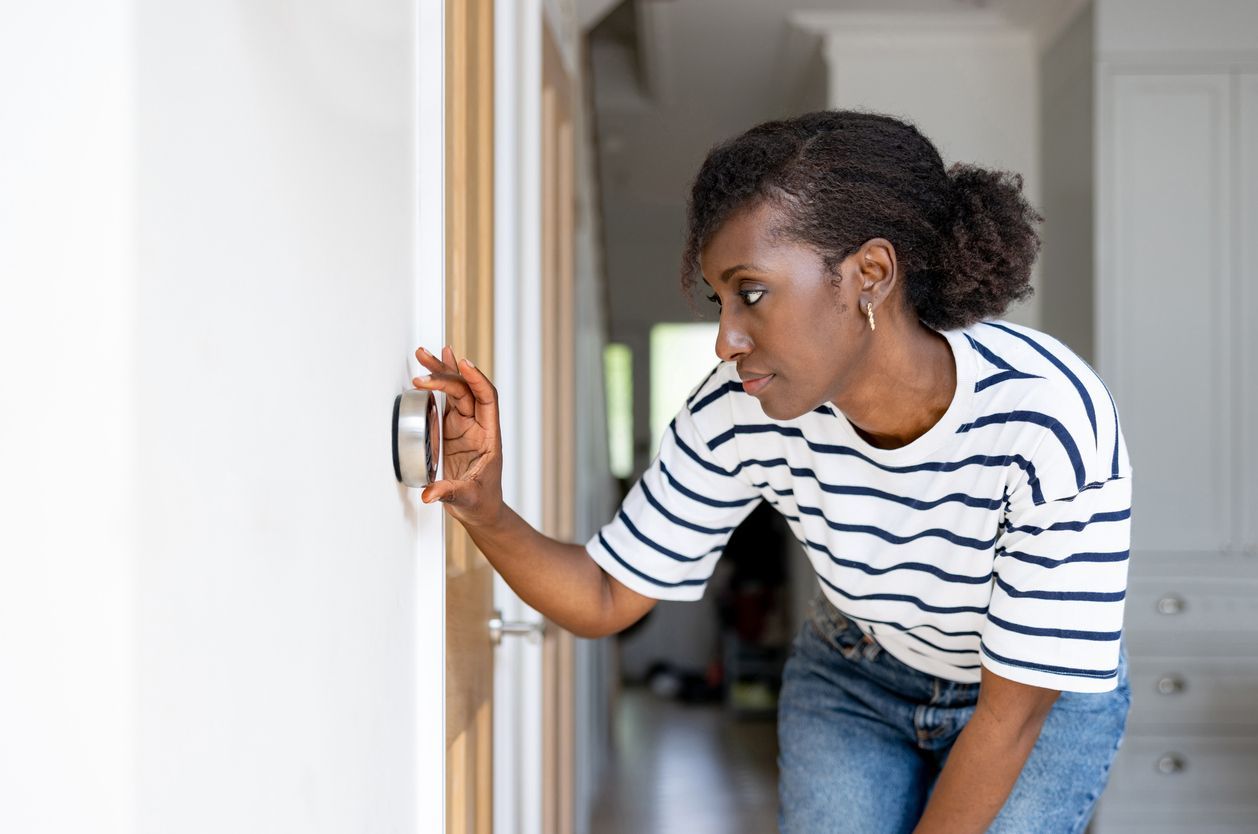7 Ways to Weatherproof Your Home for the Changing Seasons

Weatherproofing your home can be an inexpensive way to make your house ecofriendly and save you money. While proper weatherproofing does require an investment of time, the payoff can be larger than you might expect. Save on electricity and keep your home more comfortable throughout the year with these weatherproofing tips.
Weatherproofing 101
- Install Door Sweeps
- Add Weatherstripping
- Use Blackout or Thermal Curtains
- Bleed the Radiators
- Purchase a Water Heater Tank Cover
- Clean the Gutters
- Get a Roofing Inspection
1. Add Weatherstripping
Small cracks, gaps, and holes by windows and doors can wreak havoc on your heating and cooling efforts. Using caulking and weatherstripping can eliminate this issue with ease. Purchase weatherstripping at your local hardware or home improvement store and you will not only lower your electric bill, but help seal out drafts, moisture, and dust. This can help mitigate mold build-up around your windows and keep out bugs.
2. Use Blackout or Thermal Curtains
Blackout curtains can be effective for promoting sleep, but they can also offer a small amount of insulation. During a heat wave, they can provide an extra layer of insulation from the outdoor air. In the cold winter months, blackout curtains offer the small benefit of keeping the cold air out and the heat in, but if you want to get the most effective protection, opt for thermal curtains instead.
3. Bleed the Radiators
Depending on your home heating system, you may have oil or water being piped through your walls. This allows heat to pass through the radiators and keep your home warm. Experts recommend bleeding your radiators twice yearly to remove any trapped air that is trapped within the pipes, which makes the system more energy efficient. If it seems like the thermostat is not responsive, or if you hear pipes banging or radiators bubbling, it’s likely time to bleed the radiators.
4. Purchase a Water Heater Tank Cover
Your living space is not the only area that needs extra protection during certain times of the year. If your basement is chilly during the winter months, you are likely making your water heater work harder to keep water warm. To prevent your water heater from losing heat, purchase a water heater tank cover to further insulate it against the cold temps.
5. Clean the Gutters
Take your weatherproofing mindset outdoors as well. Check your rain gutters for leaves and debris which inhibit water from draining properly and can lead to leaks and unwanted seepage. If you’re uncomfortable on a ladder, there are companies who will do this work for you, to ensure your home is ready for whatever the weather may bring.
6. Get a Roofing Inspection
Lastly, a roofing inspection is incredibly important, and should be done routinely, not only when trouble strikes. Small repairs are a lot less costly than replacement roofs, and minor damage can become more than an inconvenience after rain, wind, ice, and snow. Read more about why roofing inspections are important here.
Related Post: Minimize Environmental Allergens in Your Home










